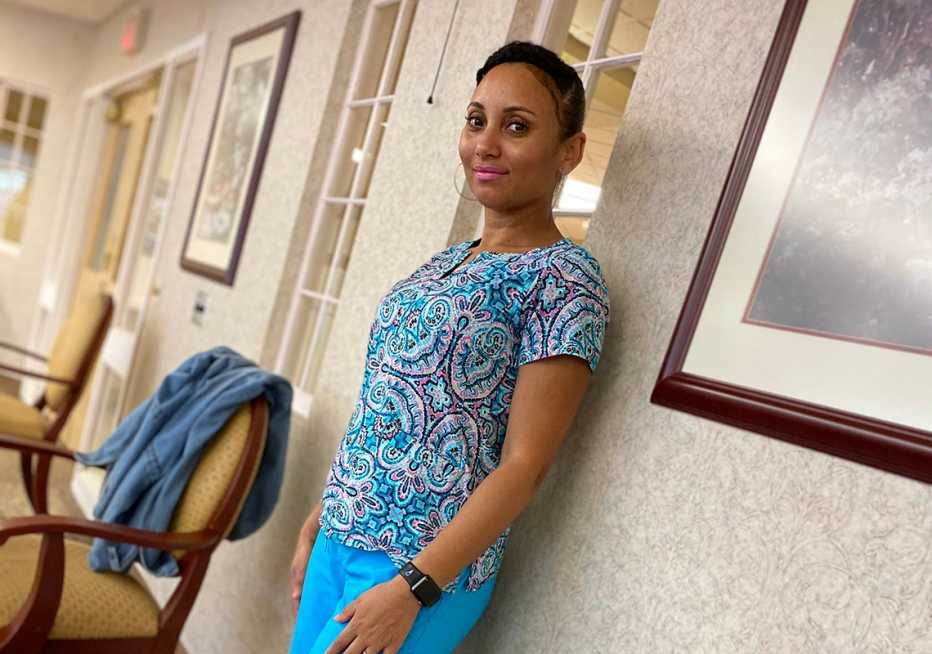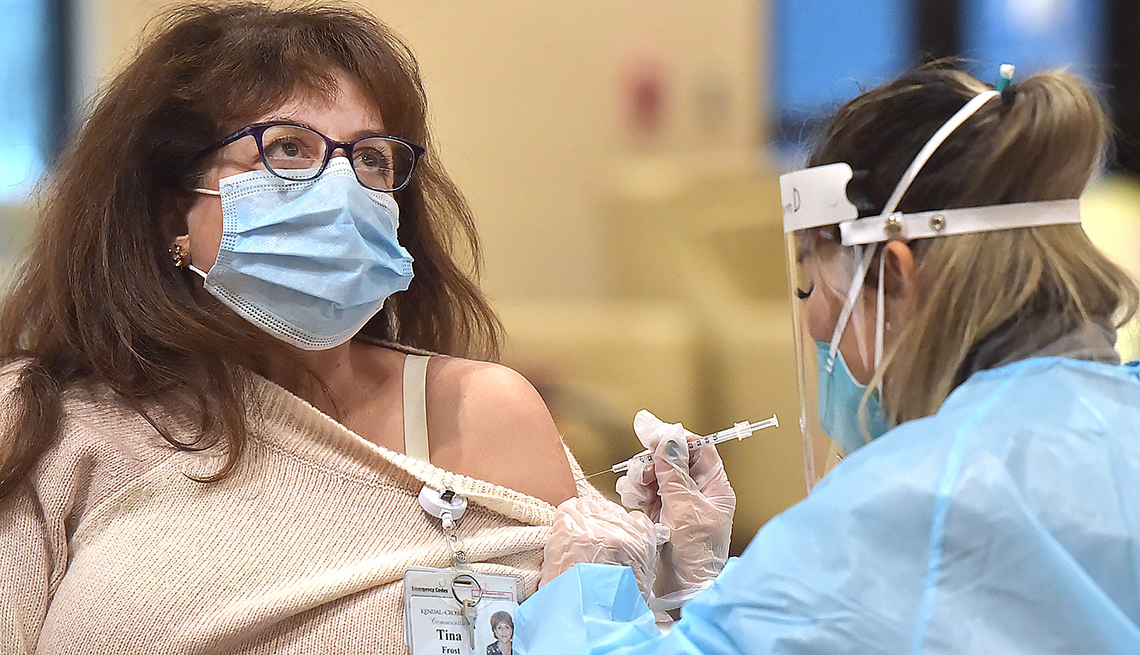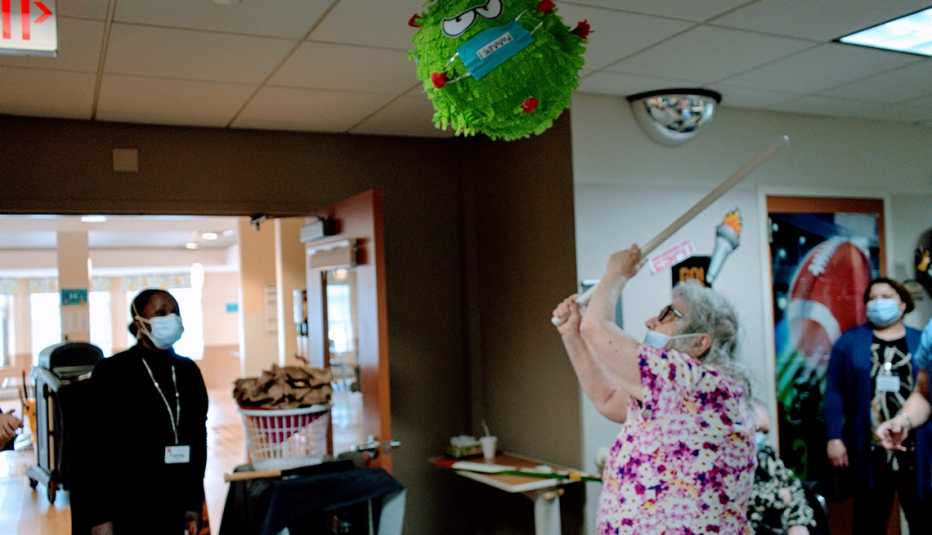Staying Fit
COVID-19 has rampaged through nursing homes and other long-term-care facilities, leaving a death toll near 180,000 and counting. So when the first coronavirus vaccines became available at the end of last year, nursing home residents and staff were first in line, given top priority along with emergency responders and health care providers.
The federal government contracted with CVS and Walgreens to administer three vaccination clinics for residents and staff at nearly every nursing home in the U.S. That effort, called the Pharmacy Partnership for Long-Term Care Program, wraps up this month.


AARP Membership— $12 for your first year when you sign up for Automatic Renewal
Get instant access to members-only products and hundreds of discounts, a free second membership, and a subscription to AARP the Magazine.
So how do new nursing home residents and workers who missed the onsite clinics get vaccinated now? For residents, plans are in the works to make sure they get the shots. But so far, many of those plans don't include the staff members who care for them.
Responsibility for vaccinations now falls to individual facilities, said Katherine Grusich, a spokeswoman for the U.S. Centers for Disease Control and Prevention (CDC). The federal government is giving COVID-19 vaccines to local health departments and to the specialized long-term care pharmacies that provide facilities with other medications, although the CDC doesn't require nursing homes to give residents the vaccines. Even the federal Centers for Medicare & Medicaid Services (CMS), which regulates nursing homes, “does not currently require nursing homes to offer COVID-19 vaccines to residents and staff,” a CMS spokesperson said.
Nevertheless, most residents have been fully vaccinated and cases of the virus and resulting deaths have dropped dramatically in recent months. Uptake among nursing home staff members, meanwhile, has been much lower: In facilities covered in a study last month in the Journal of the American Medical Association, 78 percent of residents were vaccinated, compared to only 38 percent of employees.
That's a problem, since people going in and out of nursing homes can bring the virus with them, even if they don't have symptoms. Workers can become vectors of virus spread. The good news is that vaccine hesitancy among workers looks to be fading. “We saw a lot of staff decline the vaccine at the first visit but then choose to do it at the latter clinics,” said David Grabowski, a professor of health care policy at Harvard Medical School, describing the three federally backed clinics at facilities.
But once nursing homes have had their three clinics, he said, “there's no [federal] plan to circle back."
‘A lot of us were scared at first'
Many nursing home employees, who are generally poorly paid and often work without benefits like sick leave, were initially skeptical of COVID-19 vaccines. “A lot of us were scared at first because we didn't get enough information,” said Adelina Ramos, a certified nursing assistant at a Rhode Island nursing home. She spoke to AARP after testifying before the Senate Finance Committee last week about how nursing homes have responded to the pandemic.




































































